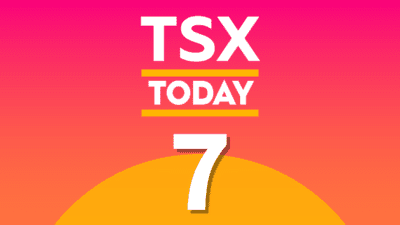In Canada, there are some companies that pay out too much in dividends. Usually this situation arises when a company is struggling, but is under immense pressure not to cut its payout. This can create a dangerous situation for investors, because if a dividend cut eventually does come, it can be ugly.
But the opposite situation can also come up; a company could pay out too little in dividends. This may be a little wasteful, but it’s certainly not as scary. It means that there’s practically no way the dividend will be cut, and if it is eventually raised, shareholders may benefit from both increased income and an increased stock price.
With that in mind, below are three companies that pay out too little in dividends.
1. Canadian Imperial Bank of Commerce
It may be a little unfair to call out Canadian Imperial Bank of Commerce (TSX: CM)(NYSE: CM) for paying out too little to shareholders. After all, the company just increased its dividend earlier this year, and now yields above 4%.
However, it has fewer places to reinvest its money than the other Canadian banks due to its decision to focus almost exclusively on Canada. Still, last year it paid out only 43% of its income in dividends, about in line with the other banks. Furthermore, its capital ratios are the highest in the industry. There’s no reason why it shouldn’t pay out significantly more to shareholders than its rivals do.
2. Manulife Financial
Manulife Financial (TSX: MFC)(NYSE: MFC) actually has quite a bit in common with Canadian Imperial Bank of Commerce. Canada’s largest life insurance company was burned very badly during the financial crisis, but has recovered nicely. Now, partly due to these bad memories, Manulife is taking a cautious approach, building up a very high capital ratio and paying out little in dividends.
Unlike Canadian Imperial Bank of Commerce, Manulife has more international ambitions, including a rapidly growing business in Asia. However, Manulife paid out only 32% of its income to shareholders last year. This may be why the company trades at a discount to its large peers.
3. Metro
Grocery selling is an industry where earnings are nice and stable, but growth can be hard to come by. So you would think that Metro (TSX: MRU) would have a payout ratio at least as high as the companies above. However, last year Canada’s third-largest grocer paid out less than 20% of its earnings. This makes little sense for such a consistent performer, especially one with such a strong balance sheet — its debt/equity ratio sits at a measly 0.3.
Like Canadian Imperial Bank of Commerce, Metro has recently raised its dividend, but the company still yields less than 2% and investors would certainly appreciate more of a payout. At least they don’t have to worry about the dividend being cut.








